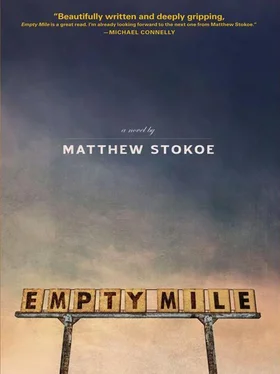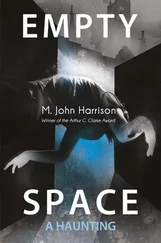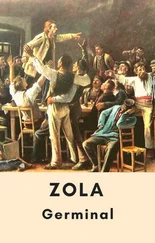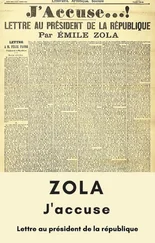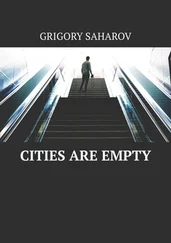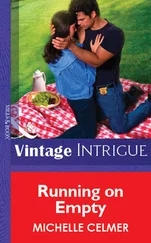Matthew Stokoe - Empty Mile
Здесь есть возможность читать онлайн «Matthew Stokoe - Empty Mile» весь текст электронной книги совершенно бесплатно (целиком полную версию без сокращений). В некоторых случаях можно слушать аудио, скачать через торрент в формате fb2 и присутствует краткое содержание. Жанр: Триллер, на английском языке. Описание произведения, (предисловие) а так же отзывы посетителей доступны на портале библиотеки ЛибКат.
- Название:Empty Mile
- Автор:
- Жанр:
- Год:неизвестен
- ISBN:нет данных
- Рейтинг книги:5 / 5. Голосов: 1
-
Избранное:Добавить в избранное
- Отзывы:
-
Ваша оценка:
- 100
- 1
- 2
- 3
- 4
- 5
Empty Mile: краткое содержание, описание и аннотация
Предлагаем к чтению аннотацию, описание, краткое содержание или предисловие (зависит от того, что написал сам автор книги «Empty Mile»). Если вы не нашли необходимую информацию о книге — напишите в комментариях, мы постараемся отыскать её.
Empty Mile — читать онлайн бесплатно полную книгу (весь текст) целиком
Ниже представлен текст книги, разбитый по страницам. Система сохранения места последней прочитанной страницы, позволяет с удобством читать онлайн бесплатно книгу «Empty Mile», без необходимости каждый раз заново искать на чём Вы остановились. Поставьте закладку, и сможете в любой момент перейти на страницу, на которой закончили чтение.
Интервал:
Закладка:
“I could come back this evening, after you finish work.”
She looked at me for a moment, then shook her head slowly.
“You’re a smart guy, Johnny, but sometimes you can be fucking dumb. I have a lot of stuff to think about. When I’m done I’ll call you; until then don’t come around, okay?”
She kissed me, then she drove away.
At lunchtime I went out to the garden center and Stan and I had a short meeting with Bill Prentice about leasing his unused warehouse. He said he’d think about it and get back to us in a few days.
CHAPTER 6
That Saturday we had a family outing. My father drove Stan and I out of Oakridge and into the hills. The forest was sparser here and ran down into gullies and small valleys. It was a hot day and the air had the dusty smell of dry pine and thirsty soil.
We parked in a clearing that was already full of 4x4s and pickups. A walking track led downhill and, carrying gold pans, a shovel, and a backpack of food, we followed it for ten minutes through land that was as much a wilderness as it had been two or three hundred years before.
Halfway along the trail Stan stopped by a fir tree and leaned against it. He reached his arms around as much of the trunk as he could and took a long slow breath through his nose.
“Stan, what are you doing?”
The annoyance in my father’s voice came more, I think, from his discomfort at Stan’s display of intimacy than from any delay to our progress. Stan didn’t answer him. He had his eyes closed.
“I can feel it, Johnny.”
“What?”
“The power. Sometimes trees can bring it across.”
I looked at my father for an explanation but he just gave an irritated shake of the head and carried on along the trail. I said to Stan, “Native Americans used to hug trees for energy when they were tired.”
“I know that.” Stan turned his head and smiled at me. “Everyone knows that.”

The Forty-Niners, after they had made the trek across the continent by wagon train, or sailed into San Francisco and then hiked to the rivers and streams inland and had at last washed their first payable amount of gold, would write to family back home that they had “seen the elephant.”
It was a description crazy enough to suit the desperate men they were and it suited the members of the Oakridge Elephant Society just as well. If you wanted a laugh, if you wanted to see the kind of whackos and crackpots that people in big cities make jokes about, then the Society was a good place to start. Oakridge had begun life in 1849 as a placer mining encampment on the banks of the Swallow River and this group of gold-prospecting enthusiasts couldn’t shake the heritage. They suffered a common addiction to the notion that somewhere, in some creek or stretch of river, there was still enough gold dust to make a man rich. All the history books said Northern California had been mined out a hundred and fifty years ago, but the members of the Elephant Society didn’t always believe what they read.
They met each week in a hall above a drugstore in Back Town. They held jobs and raised families, but on weekends they took their pans and shovels and drove out to the hills to someplace they were certain the Gold Rush had missed.
They did find gold sometimes, what they called “color” as it lay mixed with black magnetic sands at the bottom of their pans, but most of the time it was only enough to refine and seal in a glass vial and pass around as an object of interest at Society meetings.
My father had his own collection of these vials, accumulated over twenty years. They stood in a line on a shelf in our living room, a tantalizing hint of American wealth, wealth which had never yet come his way. And it was to bolster himself against a declining belief that he would ever hit the financial mother lode, I think, that he’d joined the Society a couple of years before I left Oakridge. It was a place where the dreams of others could support his own.
The recreation area the Elephant Society had chosen for its annual summer picnic bordered a level stretch of river bank that had been, as most picnic destinations around Oakridge were, the site of a Gold Rush diggings. The place was too far from town to see much use and the grass had grown long and there were small yellow flowers scattered through it.
Membership of the Society was not high and with kids and wives thrown in there were only about a hundred and fifty people in the clearing. They were grouped in separate family units but they waved to each other and went over and said hi and tossed cans of beer around. It was friendly without being invasive. I could see how a man like my father, who was anything but a social animal, could find it bearable.
He greeted several of the families as we passed them and people stood up and shook hands with him. He seemed genuinely pleased with the contact and there was something touching about the way he laughed and spoke, something a little shy and holding back, as though he felt like an impostor doing it. It made me see how thoroughly lonely he must have been, this man who had to do battle with himself each day to force the emotional responses most others took for granted.
We spread our picnic rug out and sat and ate and talked about times in the past. My father could have had any number of reasons for taking us there that day, but I saw in the anecdotes and the paper plates of food an expression of his need to reach back to the memories of other picnics, other outings like this when we had been more of a family. When life had not yet done its dirty work. What he wanted, what the three of us wanted, was confirmation that there had indeed been a shared happiness in our pasts. At least at some point.
While we were eating, Bill Prentice turned up on a quad bike he must have trailered to the parking area. He wasn’t a member of the Elephant Society, but he was on the town council and council members were elected, so smart council members made friends in every social and business organization they could. Bill had brought several crates of beer with him. After he’d unloaded them and called out for people to help themselves, he started giving kids rides on the back of his bike. My father did his best to appear disinterested.
After Stan had run over and taken a turn on the bike the three of us went panning. Many of the adults were already ranged along the edge of the river. We found a spot among them and crouched over our pans, throwing in sand then sluicing in a little water and gently rolling the mixture, over and over, until the lighter sediment had spilled off, leaving a curve of fine sand that could be made to reveal… But there was no gold in this river anymore and the Elephant Society was panning only to express its identity.
Stan and I had been panning many times with my father when we were boys so today was nothing new for us and knowing there was no chance of finding anything in this impoverished riverbed made it a pointless exercise for me. But I stayed at it, squatting there beside my father, swirling dirt and water around in a circle, because this quiet crouching together, this time that did not need too many words, was the closest we could get to each other.
Stan gave up after ten minutes and sat with his bare feet in the shallows of the river. His pan held nothing but water and he tilted it in a slow rhythm, side to side, so that its unbroken surface caught the light and threw it back across his face in a bright pulse. He was dazzling himself with the reflection and behind his glasses his eyes were unfocused and wide.
Behind us, Bill Prentice now had a girl at the end of her teens with him on the bike. She wore a tight T-shirt and a short tartan tennis skirt which flapped back over tanned thighs.
Читать дальшеИнтервал:
Закладка:
Похожие книги на «Empty Mile»
Представляем Вашему вниманию похожие книги на «Empty Mile» списком для выбора. Мы отобрали схожую по названию и смыслу литературу в надежде предоставить читателям больше вариантов отыскать новые, интересные, ещё непрочитанные произведения.
Обсуждение, отзывы о книге «Empty Mile» и просто собственные мнения читателей. Оставьте ваши комментарии, напишите, что Вы думаете о произведении, его смысле или главных героях. Укажите что конкретно понравилось, а что нет, и почему Вы так считаете.
